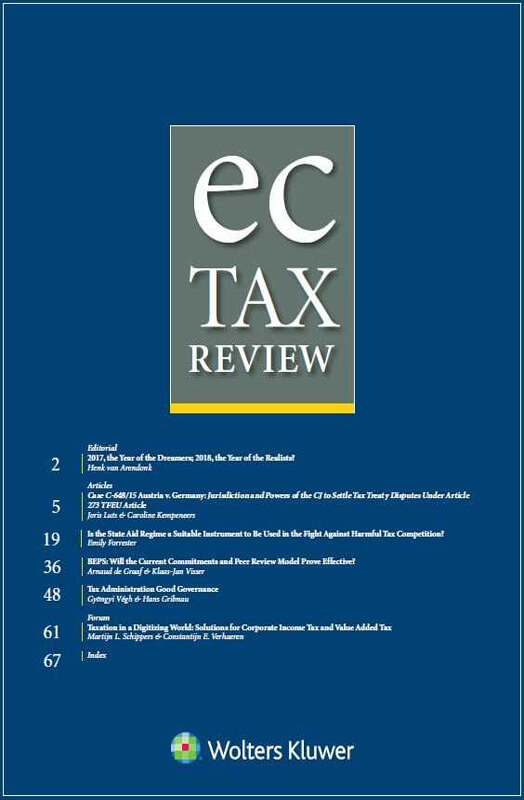Home > All journals > EC Tax Review > 22(1) >

$25.00 - Rental (PDF) *
$49.00 - Article (PDF) *
Maarten F. de Wilde, Ciska Wisman
EC Tax Review
Volume 22, Issue 1 (2013) pp. 40 – 55
https://doi.org/10.54648/ecta2013005
Abstract
As of 1 January 2012, the Dutch corporate income tax (CIT) system provides for international juridical double tax relief (DTR) under a mechanism referred to in Dutch tax practice as the 'base exemption for foreign business profits' (author's translation). The newly introduced DTR mechanism replaces the Dutch-style 'tax exemption with progression method' in the area of corporate taxation regarding proceeds derived from foreign-source business activities. The rationale for this legislative shift, according to the Dutch tax legislator, is to arrive at an augmented level of converged tax treatment for corporate taxpayers carrying on business operations abroad either directly (i.e., through a permanent establishment; 'PE') or indirectly (i.e., through a subsidiary). One of the introduced tax effects is that current losses suffered by resident corporate taxpayers from business activities carried on abroad through a PE are no longer taken into account for CIT calculation purposes. The tax legislator implicitly justifies its amendments by labelling the immediate horizontal cross-border loss set-off possibilities as available under the former DTR mechanism as a cash flow advantage granted to Dutch resident corporate taxpayers. That characterization reveals an underlying normative consideration. We do away with an 'advantage' to arrive at a taxing system devoid of anomalies at this point. The Dutch tax legislator suggests an improvement. But has he not in fact created a disadvantage? And, by doing so, infringed upon the spirit of the internal market within the European Union (EU) in the process?
Extract
